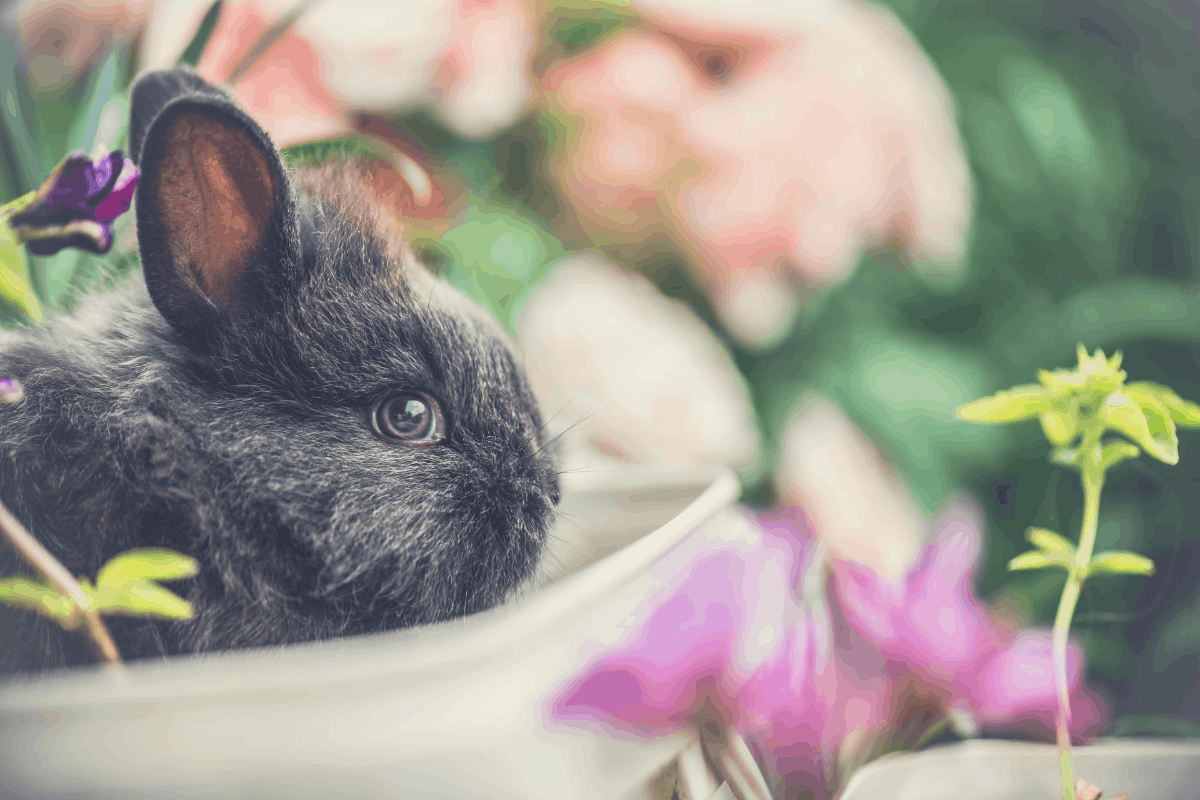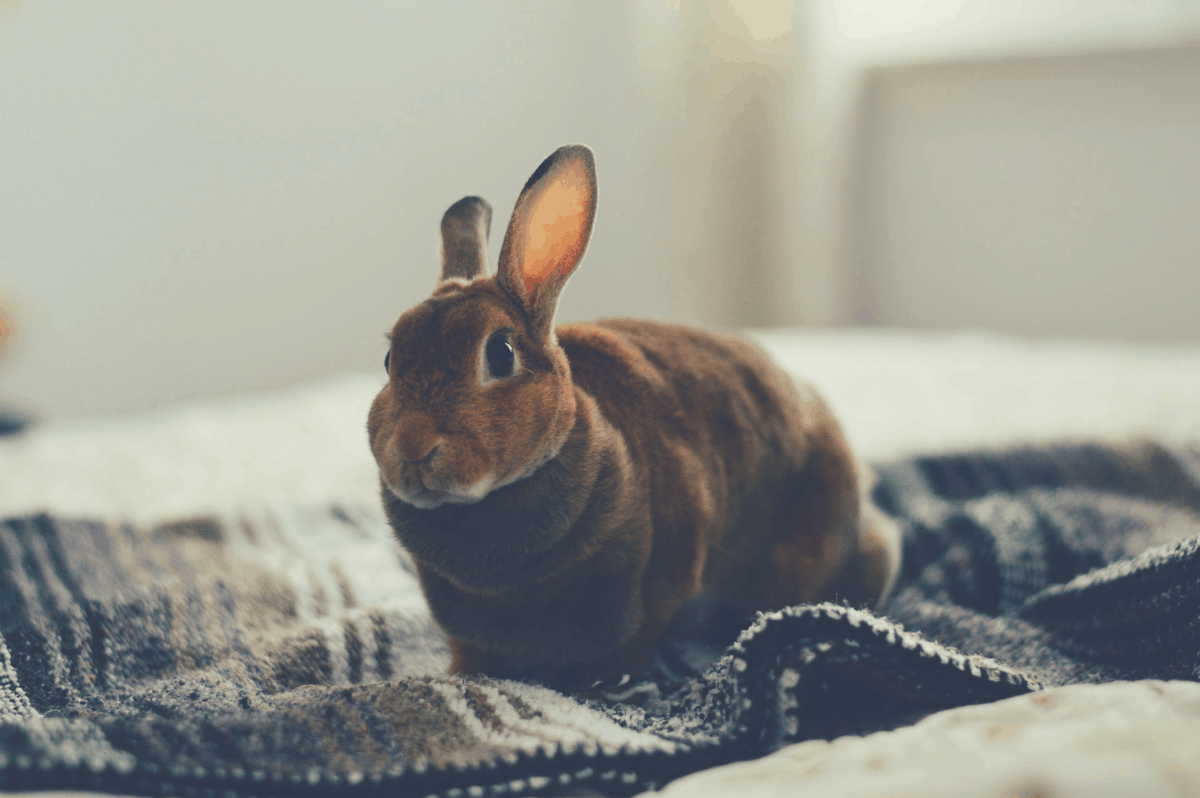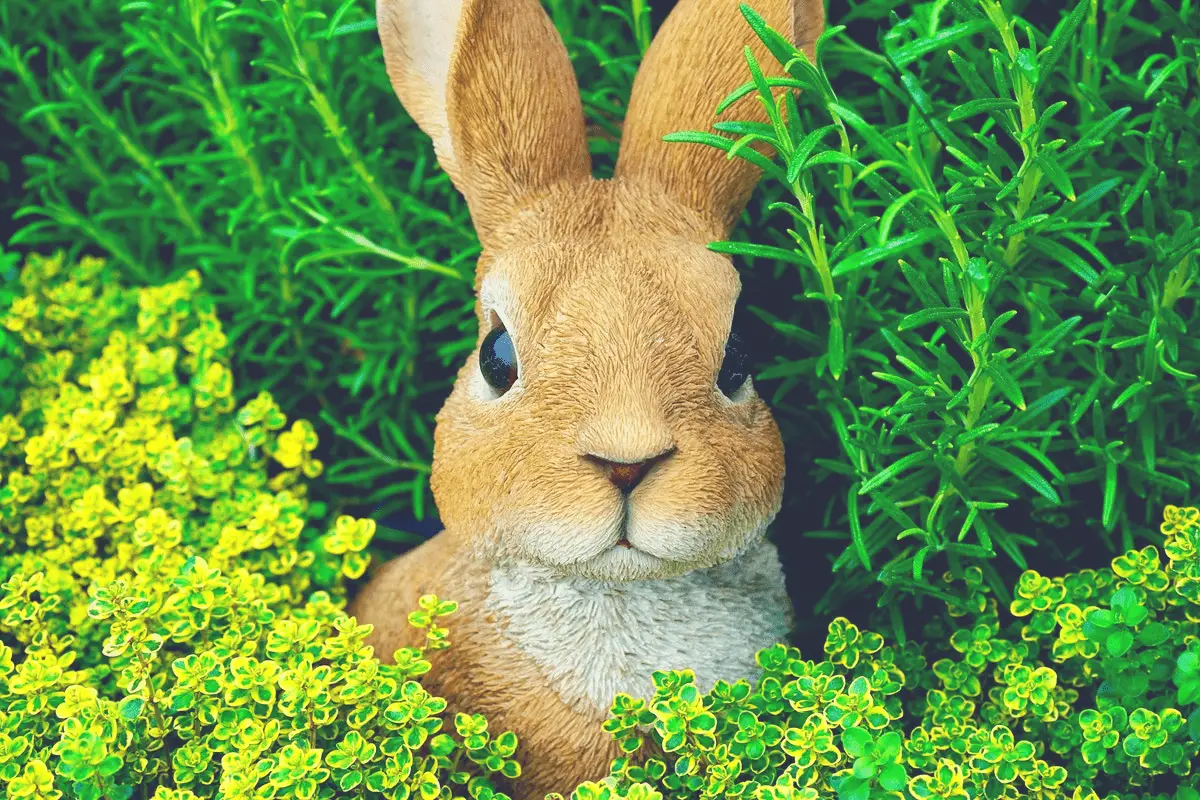A pet rabbit may bring a lot of adventure into your life and provide happiness in a variety of ways. Playing, feeding, and learning more about these pets can be an eye-opener in many ways for anyone that loves animals.
As a dedicated rabbit owner, spotting abnormal behaviors in your bun can be distressing in numerous ways. One of the biggest concerns that pop up among new rabbit owners is whether their pets are getting any sleep at all since their eyes appear open day and night.
Dedicated owners may be spooked into conducting deep research about the sleep patterns of bunnies. What usually triggers this concern is that their bunnies’ eyes seem to be open at all times. This can spike questions such as whether rabbits can sleep with their eyes open or even sleep at all.
Rabbits sleep with their eyes semi or fully opened when they find themselves in environments where they do not feel completely safe and comfortable. Keeping the eyes open is a natural defense mechanism to flee predators or similar dangers that may pop in their surroundings.
Rabbits have a third eyelid – the nictitating membrane which may be closed while keeping the 2 main eyelids open during sleep.
Why Do Rabbits Sleep With Their Eyes Open?
Rabbits have been domesticated for at least a century if not more but before then these animals lived primarily in the wild. With multiple predators and other dangers prevailing in those environments, buns had to develop efficient defense mechanisms to be able to survive.
With these animals not being particularly big or fast, sleeping fully relaxed with both eyes closed was a luxury they could not afford in the wild. Thus, the earliest generations of bunnies developed the trait of sleeping with the eyes open.
This provided a head start whenever predators were in proximity by allowing them to flee from the prevailing danger before losing their lives. This trait has been passed down several generations to the current domesticated breeds.
If your bunny still sleeps with its eyes open, that should be taken as a clue that it does not feel completely safe in the current environment. This is typical in rabbits that have just been introduced into the home or existing ones that are not treated right.
How Long Will It Take For Rabbits To Start Sleeping With The Eyes Closed Again?
This is another common question new rabbit owners ask after getting to know the underlying reasons why their pets may be sleeping with their eyes open. The truth is there’s no specific time frame for it.
The length of time it takes for a rabbit to get familiar and comfortable in certain surroundings depends on the bun’s personality as well as the treatment meted to it.
The average lifespan of a pet rabbit is about 8-14 years. While some buns may take a couple of months to get comfortable in a new environment, others may require years to reach that point. Unfortunately, it is not impossible to raise a pet rabbit that sleeps with the eyes open throughout its lifetime.
Here are a few ways to build rapport with your bunny to ensure it can relax fully during sleep and perhaps close both eyes fully.
Secure Sleeping Space: The first step to ensuring comfort for your rabbit during sleep is to provide a spacious and secure space. You may either keep them indoors or outdoors but whichever option you choose, make sure they’re able to sleep and rest in comfort, exercise and run around peacefully, and enjoy food and drinks regularly. Also, provide world-class protection from weather elements such as wind, rain, cold, and sun.
Play with It: Bunnies love to play which may provide the perfect opportunity to build rapport with a new one that has just arrived at home. Bunny bowling is one of their favorite games as it offers chances for them to knock things over. A game of fetch is another popular option where the pet rabbit gets to pick stuff up with their teeth and toss them over to you. Even in your absence, leaving a couple of bunny toys can help these pets stay active throughout.
Provide A Companion: Rabbits can feel lonely quickly which may spike their anxiety levels and affect the ability to sleep peacefully. A companion rabbit can do wonders in this regard by serving as a playmate day and night. The sense of familiarity additional rabbits provide may also improve the chances of them falling in love with their sleeping environment and being able to retire to bed with both eyes closed.
Regular Food and Water Supplies: It is important to feed your rabbits twice a day i.e. in the morning and evening. These pets love getting access to unlimited supplies of hay as well as fresh fruits and vegetables. Commercial rabbit mixes or pellets can also come in handy to provide the nutritional needs of your favorite bunnies. Feeding them regularly also adds to their comfort and may speed up the adaptation process in your home.
How To Determine Whether Your Bunny Is Sleeping
If rabbits sleep with the eyes open then how can you differentiate a sleeping one from a bored or idle one? Well, several signs can be picked on to determine whether your bun is hitting the hay or just relaxing after a long day.
A few of these may include:
Snoring: Nothing gives up a sleeping rabbit more than snoring sounds. This may come in the form of soft grunts or noises while the bunny is sleeping. As long as you pay attention, snoring sounds can be easily picked up.
Slow Breathing Rate: Like humans and other animals, the breathing rate of rabbits slows down during sleep. Taking the time to observe how quickly a pet rabbit draws breaths in can let you easily identify when the rate is lower than usual.
No Nose Twitching: Nose twitching is synonymous with rabbits that are awake and active. If you notice that the twitching has stopped, that is a clue that your bunny is enjoying some sleep.
Relaxed Ears: Buns are known for their large conspicuous ears that always stand erect. If your rabbit’s ears are suddenly relaxed and resting by the head, chances are it is fast asleep.
Dreaming: Think humans are the only ones that enjoy the realms of Dreamland? Rabbits do too. A dreaming bunny typically twitches its tail, mouth, ears, eyelids, and other parts of the body carelessly.
Rabbit Sleeping Positions

Knowing the common rabbit sleeping positions can also help owners identify when their buns are catching some Zs. Like humans, each rabbit has specific preferences with regards to sleeping positions.
Factors such as the level of comfort and familiarity in a specific environment as well as the mood at a particular point in time can determine how your rabbit lies down to sleep. Shall we take a look at the common rabbit sleeping positions?
Flop: This position is a rabbit’s version of side-sleeping with its limbs placed at the front.
Loaf: The Loaf involves the rabbit lying down on the front with the body stretched fully and the feet tucked underneath. It is the most popular sleeping position as it provides a quick ability for the rabbit to get up and run in the face of danger.
Rug: This resembles the loaf with the difference being the rear legs stick out behind it. The limbs may also be stretched forward.
Do Rabbits Sleep At Night?
If you’re yet to see your rabbit sleeping during the daytime then it is only logical to assume that bunnies only sleep at night. However, this couldn’t be further from the truth because these pets snooze a lot during the day and also late at night.
While dogs and other pets may get up to 22 hours of shuteye a day depending on their breed, age, and other factors, rabbits only need to snooze for 8 hours a day. This means they’re not the most deeply-sleeping pets out there.
Remember, bunnies follow their sleeping schedules and may not conform to yours no matter how hard you try. The best you can do is to provide the necessary conditions for superior sleep and leave them to rest based on their schedule.
Note that rabbits are more active around sunrise and sunset and try to sleep at some point during the day and at night. Thus, these animals rely on natural light to determine when to get some shuteye and when to stay active.
However, unlike humans who are naturally predisposed to sleeping when night falls, rabbits can sleep in light and darkness.
How To Help Your Rabbit Get Maximum Shuteye
You may not be able to influence the sleep schedule of your bunny but active steps can be taken to ensure superior sleep at whichever time the pet chooses.
Here are a few ways to help your rabbit get the best sleep possible:
1. Warm and Safe Environment
The first step to helping your bunny get the best sleep possible is to provide a warm and safe environment. This means a sleeping environment that is closest to their natural habitats in the wild.
Prevailing temperatures should range between 60-70 degrees to eliminate insomnia that may be triggered by putting the pets in an environment that is too hot or cold. During summer heatwaves when temperatures may skyrocket, consider putting your rabbits in an air-conditioned room or outdoors where they can enjoy the often cool night breeze.
Their cages should be insulated with soft bedding to provide the utmost comfort and a few of the best options include:
- Pelleted straws
- Fleece bedding
- Aspen bedding
- Hemp bedding
- Paper bedding
My pet rabbits sleep much better since I ordered the Small Pet Select Natural Paper Bedding from Amazon last month. It provides soft, comfortable, and absorbent sleeping space for bunnies at home.
2. Physical Exercises
Physical exercises especially in the night can trigger good sleeping duration even among the most restless bunnies. This is because like humans and other animals, physical activity can tire out rabbits easily.
The fatigue may get to the point where they need to catch some Zs to restore energy levels. Besides, physical activity may also spike the body temperatures of rabbits temporarily before plummeting to levels that can induce sleep.
There are tons of ways to play with your beloved bunny and the good news is that engaging in consistent playtimes can speed up the bond building process.
3. Let It Out Of The Cage

Keeping your bunny in the cage day and night can increase the risk of suffering a wide range of sleep troubles. Rabbits are natural roaming animals and confining them in a limited area for long periods may trigger anxiety.
This can lead to sleep disorders especially when the practice goes on for long periods. Hence, letting the rabbit out of its cage may be a good idea. If nothing at all, the ability to stretch the legs and enjoy some fresh air can improve relaxation levels for superior sleep when the time comes.
The Midwest Wabbitat Folding Rabbit Cage from Amazon sets up complete in 30 seconds. It provides a comfy sleeping space for my beloved rabbits. I couldn’t recommend it highly enough for anyone who’s raising these pets.
4. Create A Sleep Routine
As stated earlier, rabbits will always sleep whenever they feel like but that does not mean that you cannot help create a sleep routine. One of the popular methods is to drape a blanket over the whole cage.
This may not only provide a sense of warmth during cold weather but it can also offer deep relaxation as the rabbits come to appreciate some sense of safety. This may help the bunnies get comfortable to the extent of closing their eyes while sleeping.
Besides, rabbits can come to appreciate the coverage of the cage with a blanket as a message for them to go to sleep.
5. Seek Veterinary Attention
Rabbits should be able to get maximum sleep if you follow all the tips above. If they’re still struggling to reach Snoozeland then chances are your pets may be suffering one health condition or the other.
Seeking veterinary care can be the best route to identify pre-existing health complications for the right method of treatment. The Vet will conduct physical examinations as well as other tests to ensure the very best care for the bunny.
Conclusion
Sleeping with the eyes open is a common behavior in rabbits especially those that have just been introduced into a new environment. Noticing this characteristic can trigger a wave of worries in many rabbit lovers but that should not be the case.
Providing more comfort for your rabbits and building a stronger bond may speed up the time it takes for them to feel secured enough to sleep with the eyes closed. Some of the best tactics include providing a warm and secure environment, engaging in regular playtime, and providing a companion for lonely rabbits.
